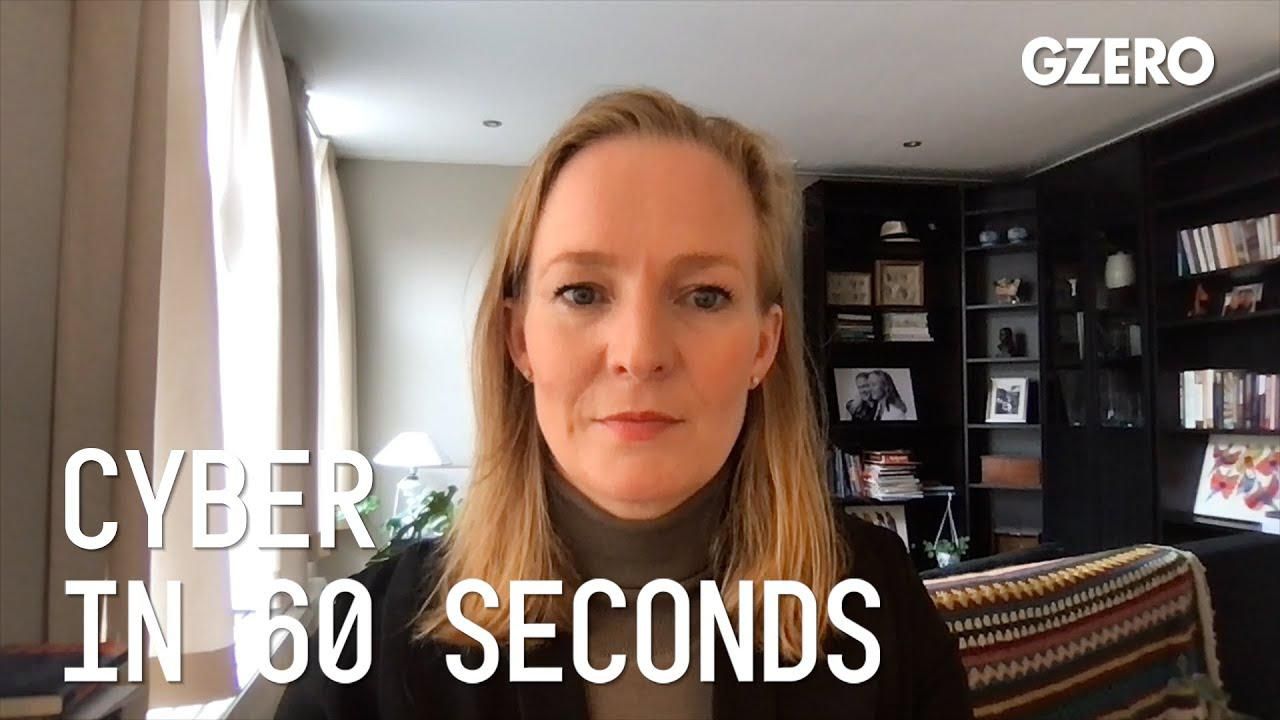Cyber in 60 Seconds
Report: China's cyber security a decade behind the US, despite hype

Report: China’s Cyber Security a Decade Behind the US Despite Hype | Cyber In :60 | GZERO Media

Marietje Schaake, International Policy Director at Stanford's Cyber Policy Center, Eurasia Group senior advisor and former MEP, discusses trends in big tech, privacy protection and cyberspace:
Question one, a recent study suggests China's cyber capabilities are a decade behind the United States. Is China really that far behind?
Well, the IISS report assessed that China is behind in cyber security, making it relatively vulnerable. But that does not change the cyber capacity and most of all, the willingness to use its tools to gain access to information through stealthy intrusion. At the same time, China benefits from an image of having great digital and cyber capabilities and of being on the cusp of global dominance. This notion of a race between China and the US we often hear about when discussing A.I., greatly benefits those who are able to gain more investments and government support from this image. So in light of opportunistic hypes, reality checks and independent research are most helpful.
Question two, what is the outlook on global cyber competition in the next decade?
Well, I'm expecting competition and confrontation in the quest for the leading role in setting norms and standards through technologies and markets. But the flip side will be the effort towards democratic regulations, updating international law, and fostering responsible behavior. Now, I hope that will be the race, which will create an upward spiral towards the rule of law in cyberspace, de-escalation of conflict, and towards greater accountability.Prime Minister Narendra Modi, with President of the European Council António Luís Santos da Costa, and President of the European Commission Ursula von der Leyen, at Hyderabad House, in New Delhi, India, on Jan. 27, 2026.
On Tuesday, the world’s largest single market and the world’s most populous country cinched a deal that will slash or reduce tariffs on the vast majority of the products they trade.
Canadian Prime Minister Mark Carney has repeatedly tussled with US President Donald Trump, whereas Mexican President Claudia Sheinbaum has tried to placate him. The discrepancy raises questions about the best way to approach the US leader.
10,000: The number of Hamas officers that the militant group reportedly wants to incorporate into the US-backed Palestinian administration for Gaza, in the form of a police force.
Walmart is investing $350 billion in US manufacturing. Over two-thirds of the products Walmart buys are made, grown, or assembled in America, like healthy dried fruit from The Ugly Co. The sustainable fruit is sourced directly from fourth-generation farmers in Farmersville, California, and delivered to your neighborhood Walmart shelves. Discover how Walmart's investment is supporting communities and fueling jobs across the nation.